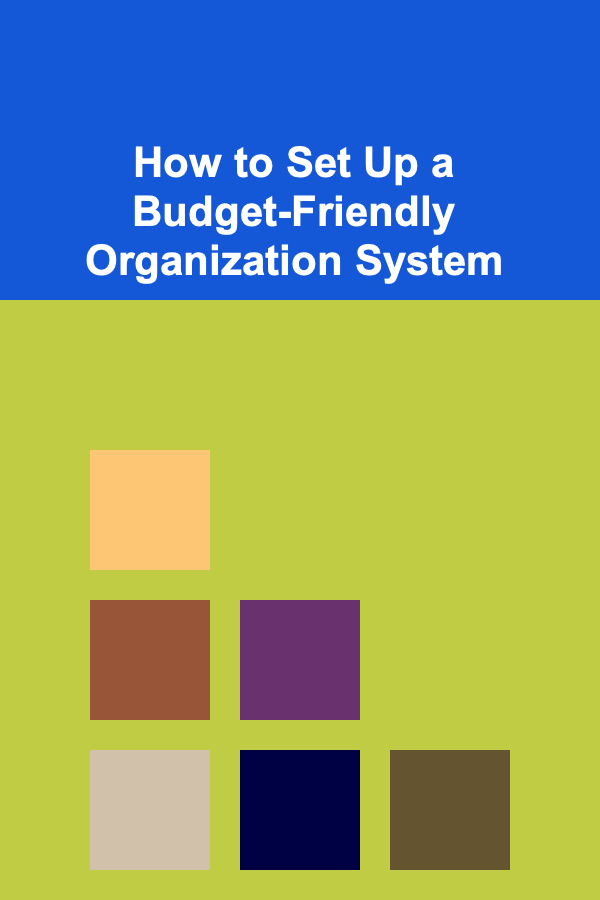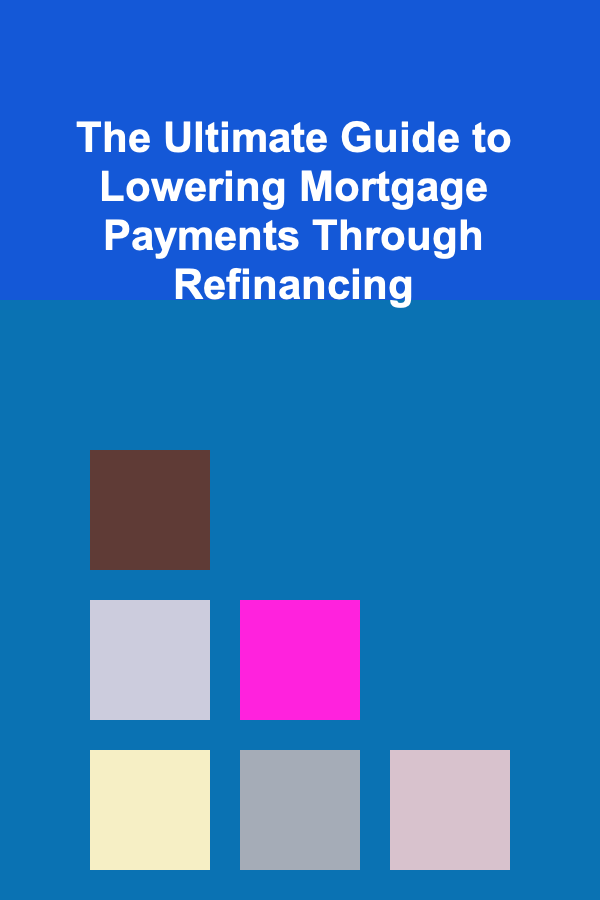
How to Sell Digital Products Successfully for Musicians & Composers
ebook include PDF & Audio bundle (Micro Guide)
$12.99$8.99
Limited Time Offer! Order within the next:

Selling digital products is a lucrative and efficient way for musicians and composers to monetize their work. In the digital age, music creation no longer needs to be confined to physical products. Digital downloads, royalty-free music, sheet music, sound packs, and even educational content have become profitable options for artists. However, simply creating these digital products isn't enough. Success in selling them online requires a strategic approach that blends creativity, marketing, and understanding of the digital marketplace.
In this guide, we'll explore actionable steps musicians and composers can take to effectively sell digital products and turn their passion into a sustainable income.
Choose the Right Digital Products to Sell
The first step in monetizing your music online is selecting the right digital products that align with your skills and target audience. As a musician or composer, you have several options to consider:
Music Tracks and Albums
- Single Tracks: Selling individual songs or pieces is perfect for musicians who have a diverse catalog or wish to release specific singles.
- Albums: Full albums allow you to package your music together, offering a more comprehensive experience for your audience.
- Exclusive Releases: Offering exclusive or early-access content can build a sense of value for fans who are eager for new material.
Sheet Music and Compositions
- Sheet Music: If you're a composer, selling sheet music for your compositions is a great way to reach musicians who want to play your work. You can offer piano transcriptions, orchestral scores, or even individual instrument parts.
- Arrangements: Custom arrangements of existing music are valuable to students, conductors, and music educators.
- Music Scores: Offer different difficulty levels, from beginner to advanced, depending on your target market.
Sound Packs and Loops
- Sound Packs: If you produce electronic music, creating and selling sound packs, loops, and samples can provide a passive income. This includes drum kits, basslines, or instrument loops for other producers to use in their tracks.
- Presets: For producers who use synthesizers or software instruments, selling preset banks for popular software like Serum or Massive is a great way to cater to other music creators.
Music Licensing and Royalty-Free Music
- Licensing Music for Media: Many composers make a significant income from licensing their music for commercials, TV shows, films, or YouTube videos. This can be a highly lucrative avenue if you have a versatile catalog of compositions.
- Royalty-Free Music: Offer your music for use in content creation, including podcasts, YouTube channels, and corporate videos. Sites like Epidemic Sound or AudioJungle allow artists to sell royalty-free tracks, providing an ongoing revenue stream as people license your music.
Music Education Content
- Tutorials: If you're proficient in specific instruments or genres, creating music tutorials (video or text) can attract musicians who wish to improve their skills. These could be basic lessons or advanced techniques for specific instruments.
- Course Creation: For musicians or composers with more in-depth knowledge to share, online courses focusing on composition, production, or music theory can be highly profitable.
Music Production Templates
- DAW Templates: If you're a producer, you can create and sell pre-configured templates for popular digital audio workstations (DAWs). These templates allow other producers to start their projects with the right settings, routing, and effects in place.
- MIDI Files: MIDI files for melodies, basslines, and chord progressions are in demand from producers looking for inspiration or structure for their own tracks.
Create High-Quality, Professional Products
Once you've selected the products to sell, focus on ensuring that your digital items are of the highest quality. This is vital for building trust with your customers and ensuring they return for future purchases.
Audio Quality
For music products, particularly tracks, albums, and sound packs, audio quality should be top-notch. Invest in quality production equipment or work with professional audio engineers to ensure your sound is polished. High-quality sound is essential when selling music, especially when you're competing with other high-caliber artists and producers.
Presentation of Sheet Music
If you're selling sheet music, make sure your transcriptions are accurate, legible, and formatted professionally. Poorly formatted sheet music can frustrate potential buyers and drive them away. Software like Finale or Sibelius can help you produce professional-grade sheet music.
Packaging Your Digital Products
Presentation matters even in the digital world. Ensure that each product is well-packaged with clear descriptions and previews. For instance:
- Music Tracks: Include detailed information about the track, such as genre, mood, and instruments used. Provide a high-quality audio preview.
- Sound Packs: List the types of sounds in the pack, provide demo tracks, and clarify the file types included.
- Courses or Tutorials: Offer a comprehensive overview of the content, what skills will be learned, and testimonials or reviews if possible.
Choose the Right Platform to Sell Your Products
Now that you have your products ready, it's time to choose where to sell them. There are a variety of platforms available to musicians, and the one you choose depends on your product type and audience.
Music Platforms
- Bandcamp: A popular platform for selling music directly to fans. Bandcamp allows musicians to set their own prices and keep a significant portion of the revenue.
- SoundCloud: Though primarily a streaming platform, SoundCloud also offers the ability to sell music through third-party services, including Bandcamp integration.
- iTunes/Apple Music: Distributing through iTunes gives you global exposure, though they typically take a larger percentage of each sale.
- Spotify: Although Spotify is primarily a streaming service, you can use platforms like DistroKid or TuneCore to distribute your music and earn royalties from streams.
Marketplaces for Composers
- AudioJungle: Ideal for selling royalty-free music and sound effects to filmmakers, game developers, and YouTubers.
- Epidemic Sound: A music licensing platform that allows composers to sell tracks to be used in video and media productions.
- Jungle Loops and Splice: These platforms are great for selling sound packs, loops, and MIDI files to other producers.
Courses and Tutorials
- Teachable: A platform for creating and selling online courses. It's user-friendly and integrates with payment processors, making it easy to monetize educational content.
- Udemy: If you're looking to create video courses or tutorials, Udemy allows you to reach a broad audience.
- Skillshare: Another great platform for teaching music theory, production, or instrument lessons.
Direct Sales on Your Website
Having your own website is essential for controlling your brand and product presentation. Selling digital products through your website can offer the highest profit margin since you don't have to pay platform fees. Tools like Shopify or Gumroad make it easy to set up a digital storefront where buyers can download your products directly after purchase.
Market Your Products Effectively
Creating and listing your products is only half the battle. To sell successfully, you need a solid marketing plan to reach your target audience.
Leverage Social Media
Use platforms like Instagram, Twitter, Facebook, and TikTok to promote your digital products. Share sneak peeks, behind-the-scenes content, and engage with your followers to build a community around your music.
- Instagram: Post high-quality images or video clips of your work, and use Stories to engage with followers.
- Twitter: Announce new releases, interact with fans, and network with other musicians and composers.
- TikTok: Use TikTok's short-video format to showcase your music, tutorials, or sound design processes.
Build an Email List
Email marketing is a highly effective tool for selling digital products. By building an email list, you can notify your subscribers about new releases, sales, and special offers. Platforms like Mailchimp or ConvertKit allow you to automate this process and engage with your audience directly.
Collaborate with Influencers
Partnering with influencers in the music and production space can give your products exposure to a broader audience. Collaborate on reviews, demos, or guest appearances to introduce your products to potential buyers.
Use Paid Advertising
If you have the budget, paid ads on Facebook, Instagram, or YouTube can help boost visibility. Target your ads specifically to people interested in the types of music or products you create.
Provide Ongoing Support and Customer Service
Building a loyal customer base is essential for long-term success. Providing excellent customer service will keep people coming back and encourage word-of-mouth marketing.
- Offer Support: If customers have issues with downloading or using your digital products, be prompt and professional in providing support.
- Engage with Your Audience: Respond to comments and messages, ask for feedback, and show appreciation for your customers' support.
Conclusion
Selling digital products is a powerful way for musicians and composers to build a sustainable income and grow their brand. By offering high-quality products, choosing the right platform, and implementing effective marketing strategies, you can successfully tap into the vast digital marketplace. Remember to remain authentic, engage with your audience, and continually refine your products and marketing efforts to achieve long-term success. With the right approach, your digital music products can reach audiences all over the world, creating opportunities for financial growth and artistic recognition.

How to Keep Your Basement Dry and Prevent Water Damage
Read More
How to Protect Your Home Against Seasonal Break-ins
Read More
How to Set Up a Budget-Friendly Organization System
Read More
How to Use Budgeting Apps to Keep Your Finances on Track
Read More
How to Use Plants and Greenery to Liven Up Spaces
Read More
The Ultimate Guide to Lowering Mortgage Payments Through Refinancing
Read MoreOther Products

How to Keep Your Basement Dry and Prevent Water Damage
Read More
How to Protect Your Home Against Seasonal Break-ins
Read More
How to Set Up a Budget-Friendly Organization System
Read More
How to Use Budgeting Apps to Keep Your Finances on Track
Read More
How to Use Plants and Greenery to Liven Up Spaces
Read More